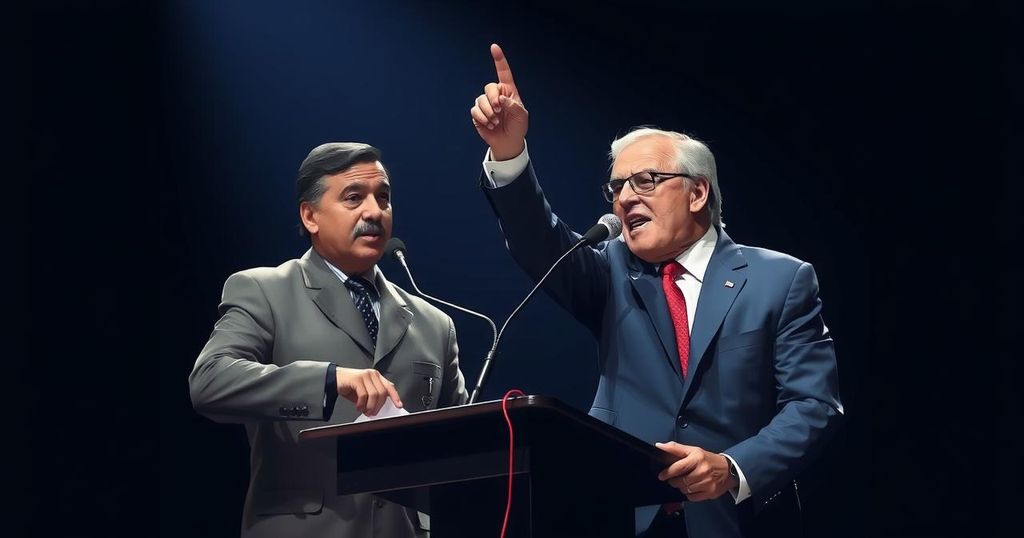Uruguay Prepares for Tightly Contested Presidential Election

Uruguay prepares for a critical second-round presidential vote featuring center-left candidate Yamandu Orsi and conservative Alvaro Delgado, with polls indicating a close race. Orsi seeks to implement modern left policies, while Delgado emphasizes continuity and government stability. Both candidates aim to engage undecided voters ahead of the election amid economic challenges facing the nation.
In Montevideo, Uruguay, voters are preparing for a second-round presidential election between center-left candidate Yamandu Orsi and conservative Alvaro Delgado. This election, marked by a tight race, follows a year of significant electoral activity. Approximately 25,000 votes could separate the two leading candidates in a nation known for its stability and moderate politics. Orsi, who advocates for a “modern left” approach, garnered 43.9% of the vote in the first round, while Delgado received 26.8%, supported by an alliance with the Colorado Party. Polls indicate that both candidates aim to attract undecided voters as they campaign for leadership in a nation facing economic challenges.
Uruguay, a small country of 3.4 million residents in South America, is recognized for its political stability and moderate governance. Unlike its regional neighbors, the country has historically avoided extreme political polarization. The current election follows significant economic pressure on voters due to inflation, mirroring trends seen in other countries worldwide. The outcome of the election may reflect Uruguay’s unique political landscape and its people’s disposition toward maintaining continuity or initiating change.
The upcoming presidential election in Uruguay signifies a crucial moment for its democratic process as candidates Yamandu Orsi and Alvaro Delgado contest for leadership amid a backdrop of economic pressures. Given the close margins suggested by recent polls, the result could influence the country’s stability and governance style in the years ahead. Voter turnout and decisions in this tightly contested election will be pivotal in determining Uruguay’s political future.
Original Source: www.ndtv.com








